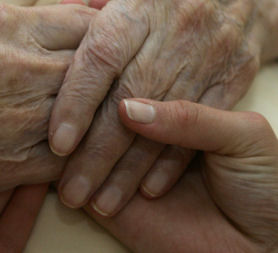Coalition considers carer credit system
The government is considering bringing in a care credit scheme where people who volunteer to help the elderly or disabled can bank credits for their own care later in life.

The scheme, based on a system already operating in Japan, allows volunteer carers to store up hours they spend helping others in a personal time account which can then be claimed back when they are elderly or by someone else they choose.
Care Services Minister Paul Burstow, told the BBC is was a way to “enable communities to take social care responsibilities on for themselves”.
“What they do in Japan is effectively a way of people sharing their time and giving of their time to make a difference for people in different parts of the country,” he said.
“We have some of those schemes here in the UK such as time banks, and what we are doing is making sure we take some of those lessons learnt in Japan and transfer them to our own domestic circumstances.”
The Japanese system, which was established in 1991, is called Hureai Kippu, or “Caring Relationship Tickets”. It has been expanded to help manage the country’s rapidly growing elderly population.
More credit is given for helping at anti-social hours or with personal body care, while household chores and shopping earn less.
The credits are available to the volunteers themselves later in life, or to someone else they choose, either in or outside their family.
“This seems like trying to get caring done on the cheap.”
Dot Gibson, National Pensioners Convention
But the suggestions met with concern from volunteer groups, who warned that carers must be properly trained and that access to proper care is a right for all elderly people.
National Pensioners Convention general secretary Dot Gibson said: “Services such as care should be paid for by society as a whole through general taxation, and those who require support in older age should be able to get help based on their needs, not on whether they volunteered to care for someone else.
“This seems like trying to get caring done on the cheap.”
Michelle Mitchell, Age UK charity director, added: “This is just one idea to encourage more people to volunteer and could make a modest contribution to meeting rapidly rising care needs.
“However, any fair and sustainable system to fund social care will also require new ways of raising revenue to provide a decent level of support to all who need it.”




